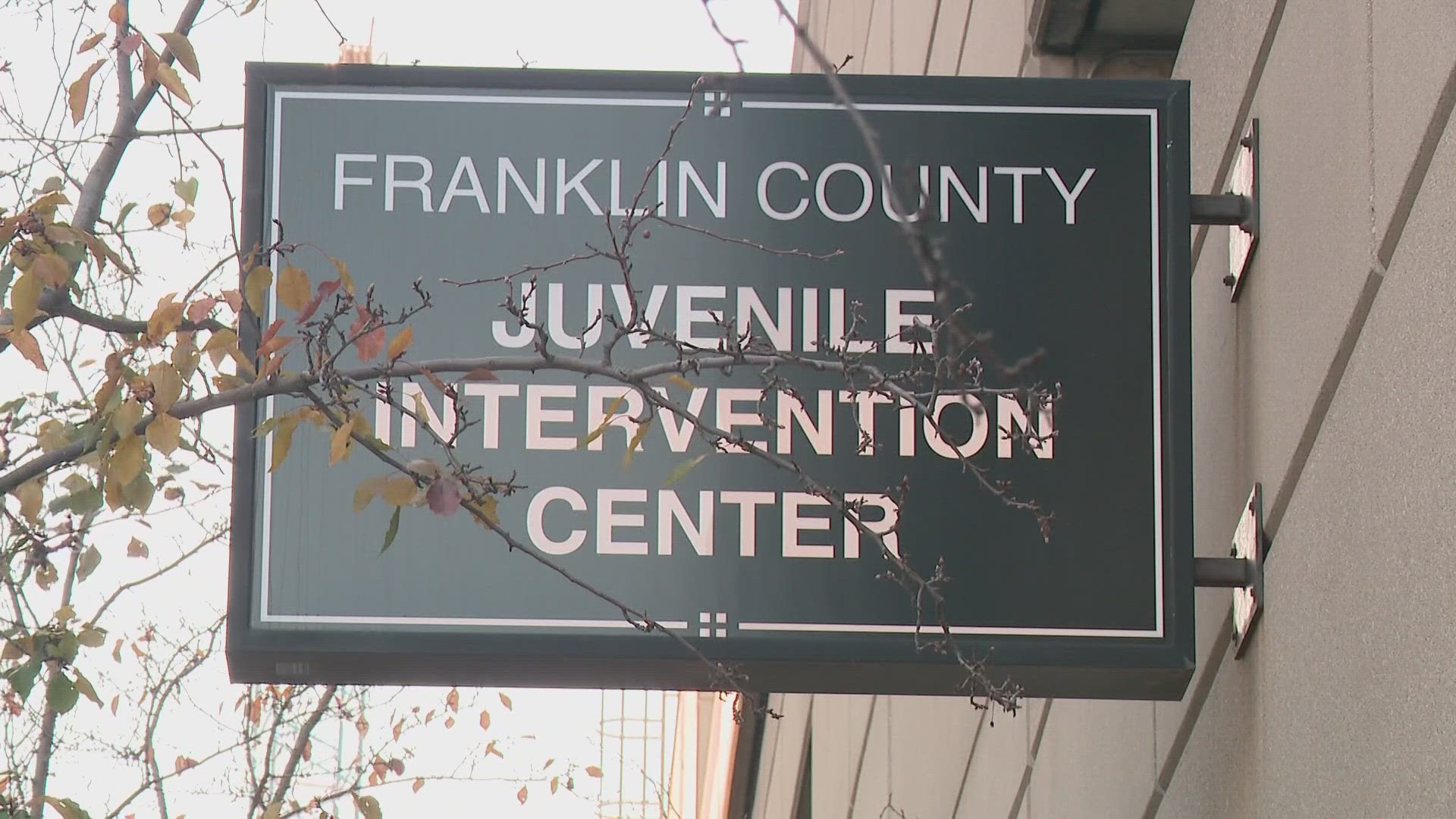COLUMBUS, Ohio — Tiffany Hammons said she begged Columbus justice officials to lock up her 17-year-old son after he was caught in stolen cars several times.
“They have to hold him accountable for his actions and stop letting him go,” she said. “That’s a slap on the wrist, and these kids are getting a drive out of that.”
The self-proclaimed mother of a “Kia Boy” said she was at her wit's end when she emailed 10TV’s investigative team in September. Hammons said her son started running away from home and stealing cars in August. Each time he was caught, he was brought home instead of the Juvenile Intervention Center (JIC).
It was a nightmare on repeat for the mother who said her worst fear wasn’t visiting her son in jail.
“I’m worried about death,” Hammons said. “Y’all taking from people who work hard for their stuff. Everybody’s not going to be OK with that. Somebody’s going to retaliate.”
It was a fear nearly realized on Sept. 28 when a teen accidentally shot himself and Hammons’ son while they were sitting in a stolen car. Instead of the JIC, Hammons’ son was sent home from the hospital with a gunshot wound and another felony.
“Talking to our officers in the field, oftentimes these children will say to them, ‘Before you finish the paperwork, I’m going to be back out.’ Sadly, that has been the case,” said Columbus Police First Assistant Chief LaShanna Potts.
That was the case for Hammons’ son, who was charged with three felonies in separate incidents before he spent his first night at the JIC. Police had to release him after previous arrests because the teenager didn’t score enough points on the detention screening instrument to be held at the JIC.
“Just because you have multiple cases does not mean you are appropriate for the Juvenile Intervention Center,” said Franklin County Lead Juvenile Judge Lasheyl Stroud.
Stroud is on the committee that created the detention screening instrument. It’s a points system that determines if a juvenile should spend the night behind bars or be sent home after they’re arrested. A change made by the committee in June increased the number of points a kid can score without going to the JIC. Receiving stolen property – the charge most often associated with auto theft – is not on the list of crimes that will result in an automatic hold at the JIC.
“We do everything that we can to keep youth out of the detention center. That’s the reality of it, and what we believe our job to be,” Stroud said. “One night away from your home in this type of facility can drastically change the trajectory of your life. One night will absolutely increase your chance of having more nights in, decreasing your chances of never coming back.”
Franklin County juvenile judges and Columbus police are busier than they were pre-pandemic with stolen car cases. More than 1,100 kids have been charged in over 2,200 cases involving stolen cars since Jan. 1, 2021. Thirty-four percent were charged with multiple cases during that time, according to data published by the Franklin County Domestic Relations and Juvenile Court.
“People say, ‘Oh they’re stealing a car. These are young people things,’” Potts said. “But what happens when it's their sixth or seventh car? Something has to change, and we’re working collectively to make that change happen.”
Stroud and Potts said the courts and police have begun having frank conversations about the “Kia Boy” and the rise in juvenile crime. They said they are collaborating to find solutions that focus on prevention and rehabilitation. When asked by 10TV’s investigative team exactly what is being discussed in those conversations, Potts would not share details.
Stroud said two major changes have already been made. The JIC was previously run by the Village Network, but the courts took it over a few weeks ago to increase oversight. Stroud said they’re also going to assess juveniles when they go through the detention screening process to determine if they need services, like mental health help.
“It’s about finding out how did you get here, not what did you do. The what did you do is more punitive, which we’re not here for, but maybe we can intervene,” Stroud said

